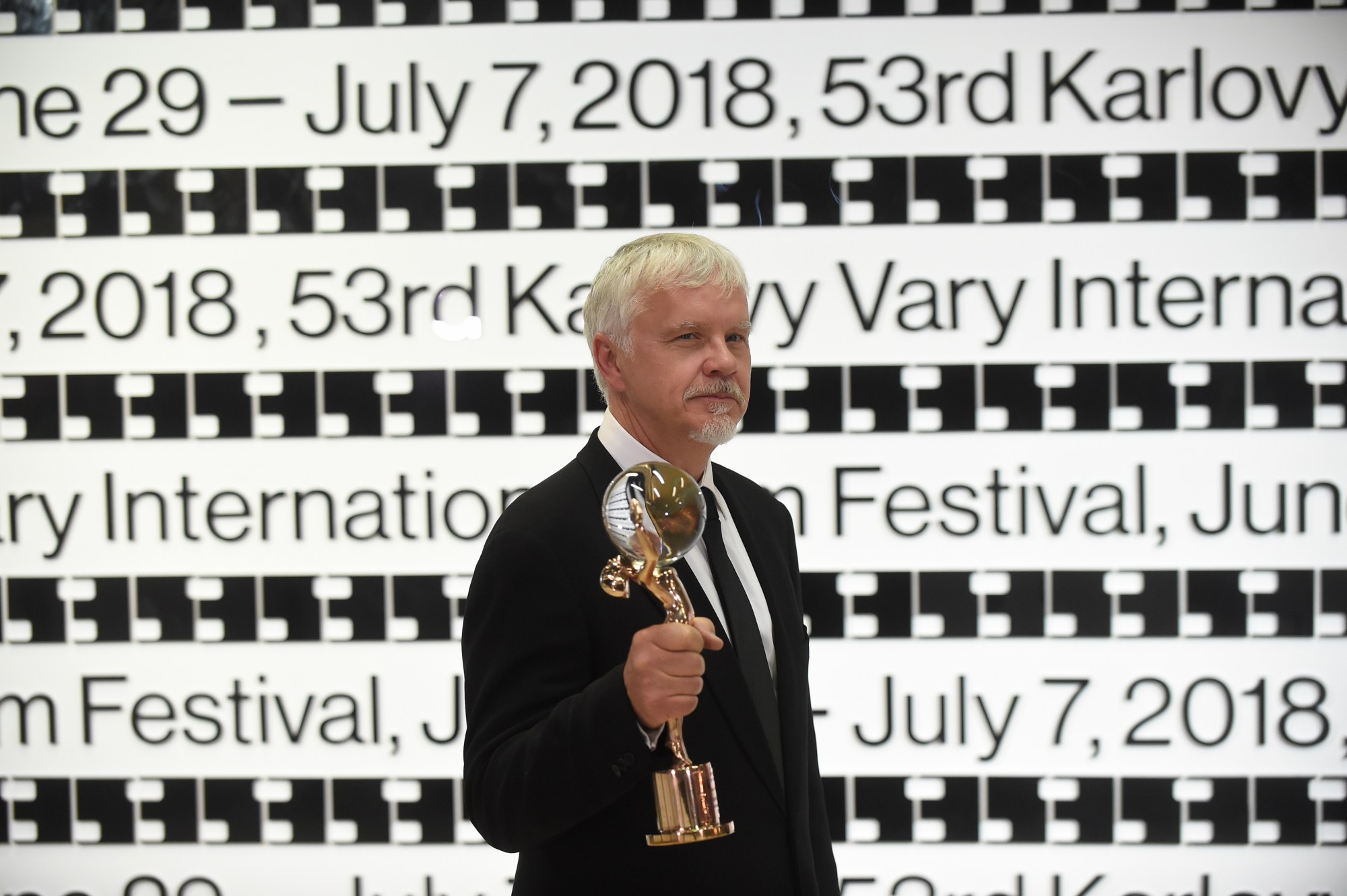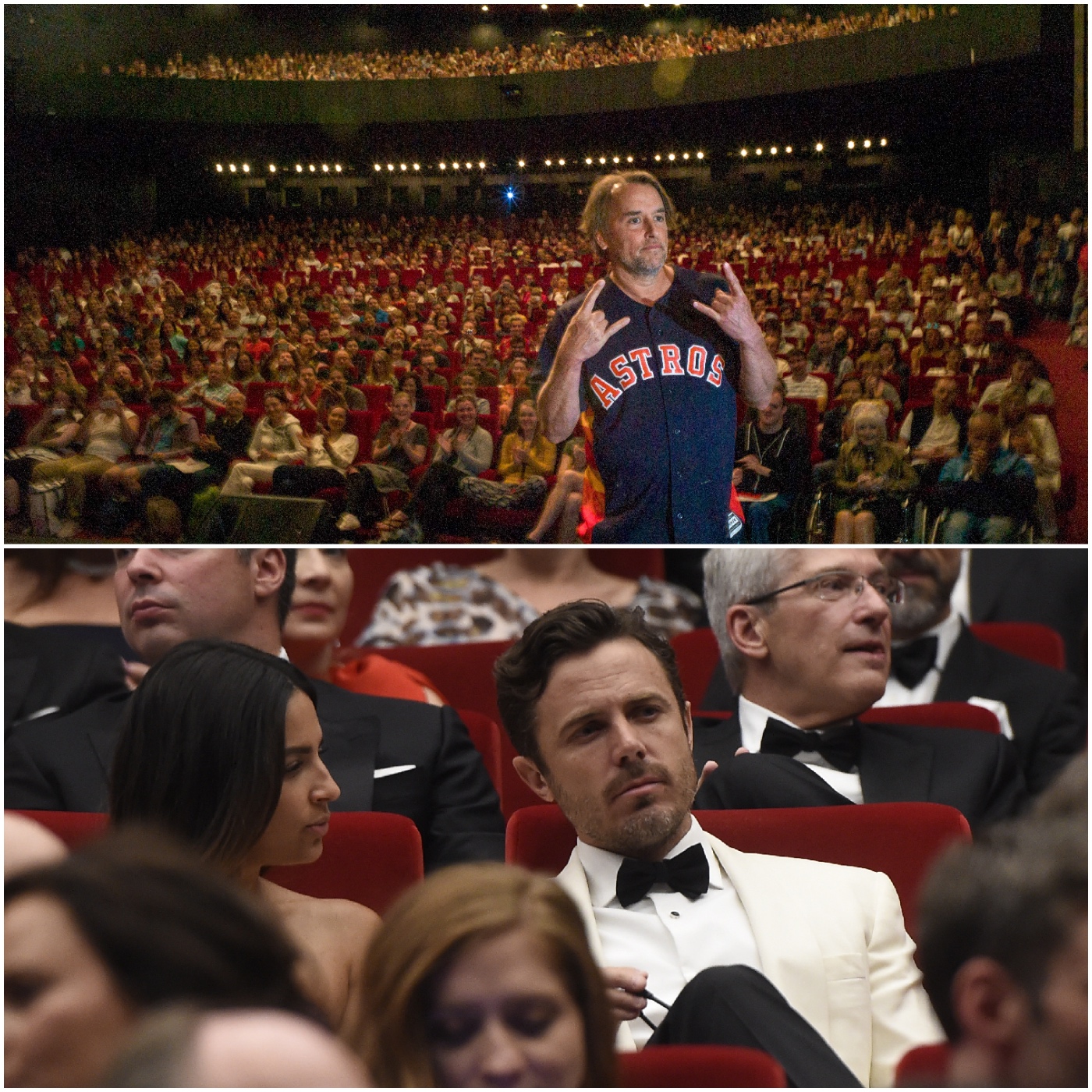
- Festivals
Karlovy Vary 2018: Celebrating Film As Art
There is no question that the Karlovy Vary International Film Festival (KVIFF, June 29-July 7) preserves and nurtures the great tradition of Central and Eastern European Cinema. Even though film festivals can be seen as collective products of a culture, the choices of this one seem conscious, and all point to keeping the idea of film as a poetic art alive.
The Festival’s American honorees corroborate that line. Richard Linklater, here for an extensive tribute to the Austin Film Society, addressed the audience on June 29th saying that film culture is generated by those who love cinema and engage in cinematic creativity regardless of profit, and by film festivals like Karlovy Vary.
Lamenting the current American sociopolitical situation in his opening night speech, Crystal Globe Honoree Tim Robbins stressed the importance of cinema: “At this time when stories that shake us up, challenge the way things are, stories that eviscerate the powerful, are most needed, it is incredibly difficult to raise money to tell these stories. That’s why it is essential for our culture and humanity that film festivals like Karlovy Vary exist. It is a moment to see films that have not yet been vetted through the Marvel Universe, reality TV, pornography deemed appropriate for the proles to see. We are at one of those special places where we can still see an unfiltered expression of the world we are living in”.
But KVIFF’s message doesn’t stop at these symbolic words. The Festival honored the memory of beloved Czech filmmaker Milos Forman and opened with a screening of his Loves Of A Blonde, shot in Czechoslovakia in 1965. The film seems peculiarly timely in its concern with the female lead character, the blond girl, who at first appears to be pulling the strings. As the story unfolds, however, the stark contrast between what she wants and what her male suitors want becomes all too depressingly clear. The film has humorous undertones but finishes with the sobering realization of female insecurity in the face of male dominance.

Special guests (and Golden Globe winners): Richard Linklater, Casey Affleck.
michal cizek/getty images
Aside from its brave political stance bridging the world of cinema with contemporary society, KVIFF continues to remind us that film need not be strictly a narrative form of art; that there is room for visual poetry and unique expression. And it tells us this not only by way of its official selections but also its carefully curated tributes to national and international film gems. No accident then that one of the first films to be screened in the Grand Theater was Diamonds Of The Night (1964) by the late Czech director Jan Nemec, which recounts the story of two Czech boys escaping from a train on its way to a Nazi concentration camp. The black & white experimental film was preserved and digitized by the National Film Archive based in Prague. Representatives of the Organization described the arduous process of the film’s digitization which, however, was deemed significant, not only for its historical value and influence over a whole generation of Czech filmmakers but also because it may continue to be an inspiration for contemporary creators.
Naturally, Karlovy Vary’s programs focus especially on works representing Central and Eastern Europe as well as the countries of the former Soviet Union. There seems to be a common thread of loss and desperation in these films, of which the refugee crisis is just one facet. Road trips that lead nowhere, mental illness due to the horrors of war, broken families or dreams, lost nations and histories, personal confusion and indecision seem to permeate KVIFF’s competition screenings.
One film that stood out among them all, incorporating all of the above elements but also balancing the sentiment of emptiness with a lively sense of absurdist humor coupled by one-of-a-kind visuals, was Volcano by Ukrainian director Roman Bondarchuk. Lost in the Ukraine steppes, Lukas — an ambitious young man — wanders through surrealistic landscapes and situations that at times seem to threaten his life and at others to possess the key to contentment. His urban timidity is challenged by the older Soviet Union survivor Vova, who makes do by roaming the barren terrain with a metal detector and then selling rusty pieces of war machines. The two form an unusual relationship out of which emerges the hint of a brighter life amidst the rubble.
KVIFF further promotes creativity by partnering with the Czech film development lab Midpoint, a program that picks projects for development from the same geographic areas. Romania, Greece, Azerbaijan, Hungary, Ukraine, Poland, Serbia, Montenegro and the Czech Republic were represented in this year’s selection. The projects undergo a year-long, 4-phase-process which includes script development, pitch training and project showcase, financing and co-production opportunities, as well as overall support. Following the works-in-development, several works-in-progress are presented, which compete for a $100,000 fund toward the completion of the most-promising film.
The pristine, water-flowing spa town of Karlovy Vary bristles with life and gaiety during the days of the Festival. The Czech youth, as pretty as their town, crisscross the cobble-stoned streets, parks, and bridges hopping from theater to theater, waiting patiently in line for the chance to enter sold-out screenings while enjoying the mild sunlight in between. They participate in KVIFF by attending and volunteering at the Festival’s programs and events as well as by voting for the audience award. The festival also awards the Crystal Globe for Best Feature Film ($25,000), Special Jury Prize ($15,000), and awards for Best Director, Actress, and Actor.

